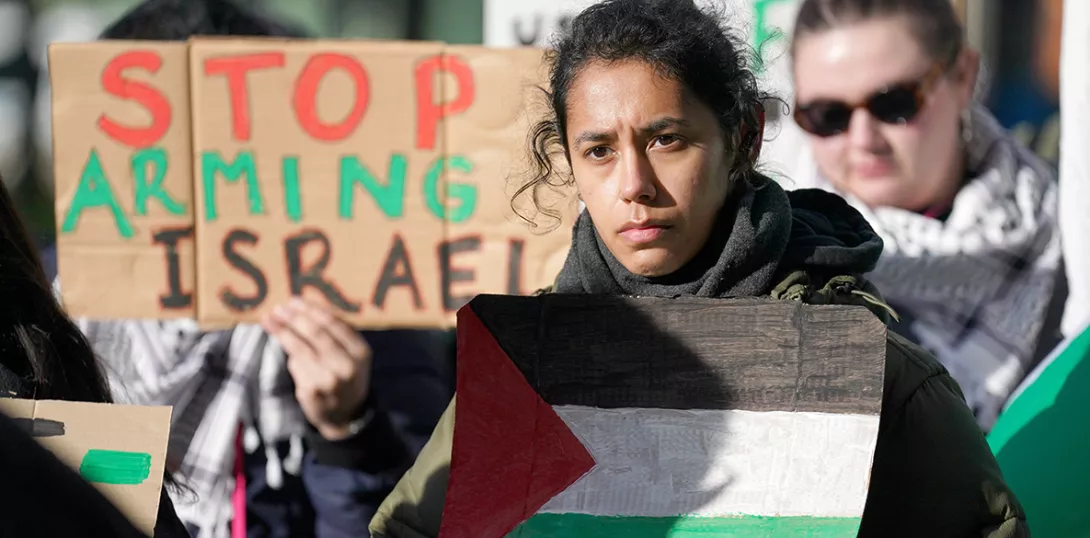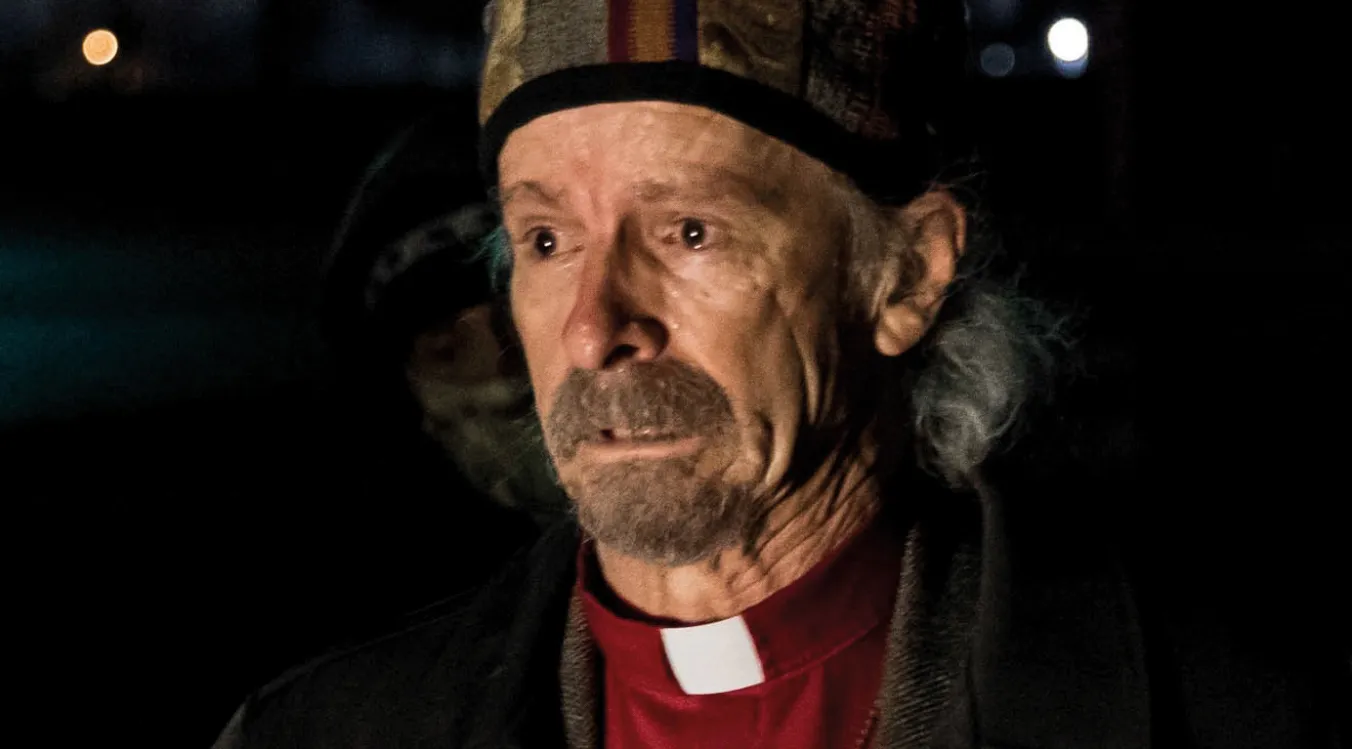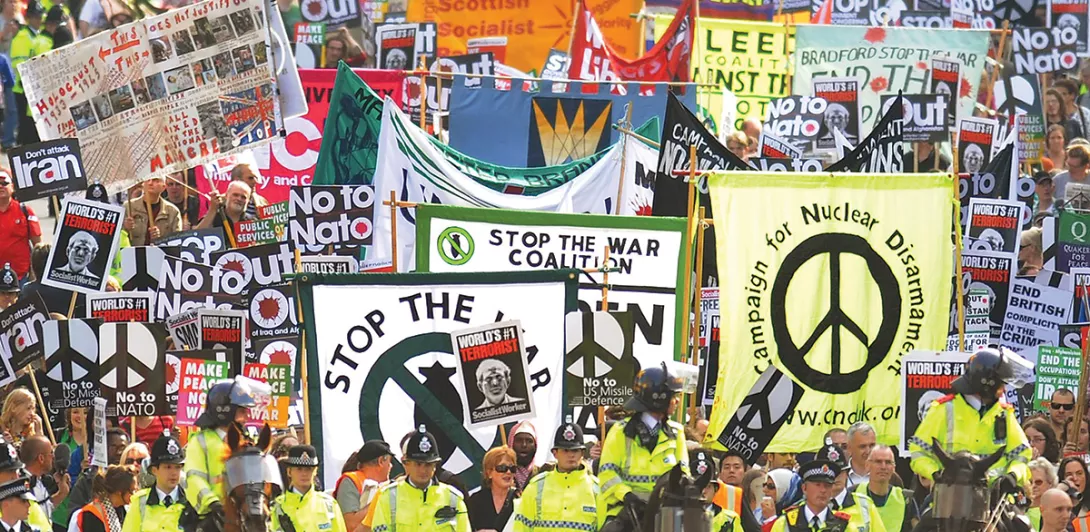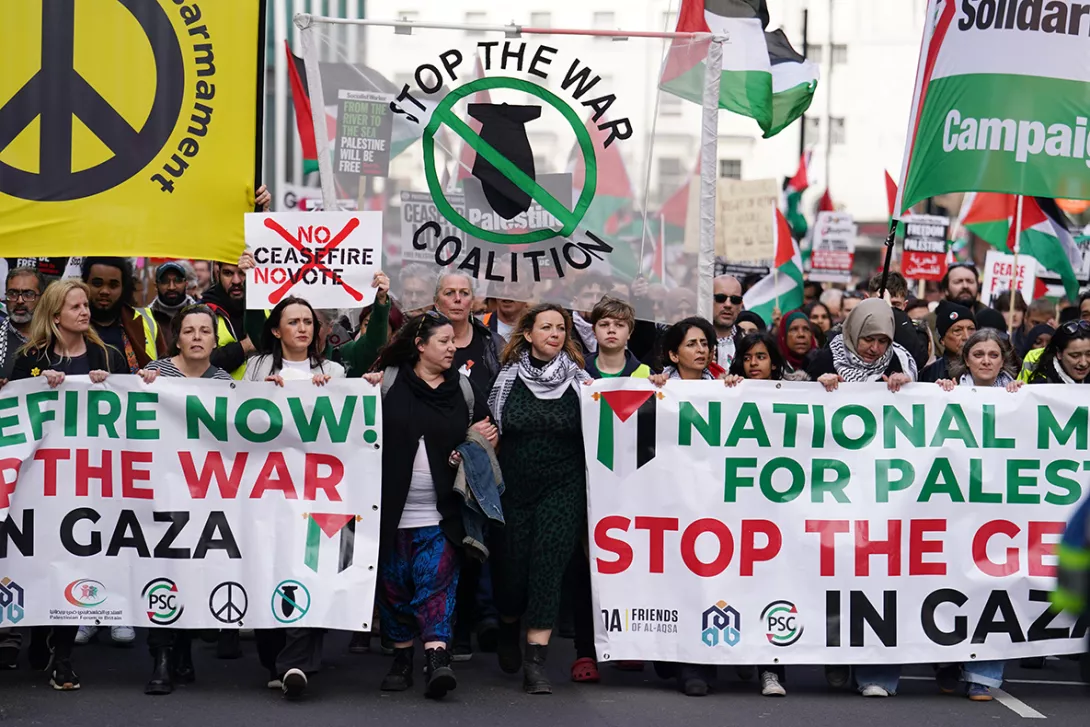
THERE have now been nine national pro-Palestine demonstrations since October 7 2023.
Every two or three weeks hundreds of thousands of people have marched through London — and cities and towns across Britain — to demand an immediate ceasefire in Gaza. The biggest protest took place on November 11 2023, with organisers estimating 750,000 people on the streets of the capital.
After climbing over a fence in Hyde Park (the opened gates couldn’t deal with the enormous number of people trying to get onto Park Lane to start marching) it took me a couple of hours to shuffle about a kilometre before I gave up and headed for home.
This tenacious movement — which has included sit-ins, actions at British arms factories, leaflet drops, confronting and writing to MPs — has almost certainly had important impacts already.
Think of how the government has become more critical of Israel, the Labour Party’s shift to calling for an “immediate humanitarian ceasefire” (albeit with caveats), and how Israeli Prime Minister Benjamin Netanyahu has admitted being worried about “the huge demonstrations in Western capitals.” However, it has been unable to compel the government to end its support for Israel and call for a ceasefire.
No doubt some in Number 10 are revelling in the fact they have been able to stand firm in the face of this intense pressure. But it would be naive to think at the end of every march people have simply gone home grumbling that nothing has changed.
Consider, for a moment, just how strongly someone must feel to give up one day of their weekend, travel to central London and walk achingly slowly in very cold temperatures. And then do it again and again. Seeing the passion and anger on display when I have marched it seems unlikely people will forget how the government and Keir Starmer’s Labour Party have backed Israel’s mass slaughter of Palestinians.
As Iraq war architect Alastair Campbell told the Iraq Inquiry: “I always have a rule of thumb that, if somebody goes on a march, there are probably 10 others who thought about it.” Fast forward to today and polls have repeatedly found a majority of Britons support a ceasefire in Gaza — 71 per cent of respondents in a December 2023 YouGov survey.
Campbell was commenting on the February 15 2003 anti-Iraq war march, which was also broadly reflective of wider public opinion. And though it’s often dismissed as being a complete failure, it provides a teachable case study, and an important warning, about the significant and unexpected influence large demonstrations can have on participants, national politics and society.
The biggest demonstration in British history, February 15 was the high point of an anti-war movement that started in the wake of the September 11 2001 terrorist attacks on the US and continued putting large numbers of people on British streets several years into the US-British occupation of Iraq.
In the May 2005 general election, the first since the invasion, support for Labour fell by 5 per cent, with their governing majority dropping from 167 to 66 seats. “One of the last polls conducted [before the election] by the BBC … suggests hostility to the war was a bigger issue than has so far been acknowledged,” the Guardian noted.
“The poll found 23 per cent of people surveyed cited opposition to the war as a reason for being reluctant to vote Labour, while 21 per cent said they did not trust Mr Blair.” There are echoes of this today with reports of Labour scrambling to stop the exodus of Muslim supporters, and voters “in affluent, predominantly white parts of the country, such as Bournemouth, Bristol and Brighton, where many voters also feel strongly about the Palestinian cause.”
And the strength of the anti-Iraq war movement arguably played a key role in terminating Tony Blair’s premiership and political career. By 2010 a ComRes poll found 37 per cent of voters thought the former prime minister should be put on trial for invading Iraq. Starmer, who is still only the leader of the opposition, has already been on the receiving end of a huge amount of flak over the war in Gaza.
The anti-Iraq war movement also led to a shift in activist tactics. Groups like the anti-airport expansion group Plane Stupid and anti-austerity UK Uncut turned to nimble, media-friendly direct actions out of a frustration with the A to B marches of the anti-Iraq war movement. Ditto the “black block,” the now largely forgotten masked activists who vandalised shops and banks during 2011 in opposition to the savage Tory cuts.
“All of them said the failure of the peaceful anti-Iraq war march to overturn government policy was formative in their decision to turn to violence,” the Guardian reported after speaking to a number of people involved in actions.
Sadly, another small group of people turned to far more deadly violent action. We know at least one of the 7/7 suicide bombers, Germaine Lindsay, and three of the 21/7 failed suicide bombers — Muktar Said Ibrahim, Yassin Omar and Hussain Osman — attended an anti-Iraq war protest. When he was captured in Rome, Osman said “I am against war. I’ve marched in peace rallies and nobody listened to me.”
Speaking to me for my book on the anti-Iraq war movement, author and activist Mike Marqusee provided a plausible explanation for this journey from non-violent protest to suicide bombings: “It is definitely true that the more you reject a community’s legal, lawful and non-violent expressions and aspirations the more some of them are going to turn to illegal and violent responses.”
When I asked terrorism expert Raffaello Pantucci about this in 2014, he urged caution about making any sweeping claims. “The link between the non-violent protest, subsequent frustration and action is not as linear as you might suggest,” he told me.
“I would say that in both the 21/7 and 7/7 lot, there is considerable evidence that they were very radical before the invasion of Iraq. Iraq seems to have acted as an accelerator, but I would say that they were headed down that path long before the 2003 rally.”
The 7/7 atrocities will not have been a surprise to the government — before the Iraq war Eliza Manningham-Buller, the director-general of British security service MI5, warned ministers and officials that an invasion of Iraq would increase the terrorist threat to Britain.
Similarly, in January the head of counter-terrorism policing in Britain warned there has been an “unprecedented” spike in terrorism threats since October 2023, with Israel’s war on Gaza creating a “radicalisation moment” with the potential to push more people towards terrorism.
This follows European security officials reporting in November 2023 they are seeing a growing risk of attacks by Islamists radicalised by the war. “A British security official said the war in Gaza was likely to become the biggest recruiter for Islamist militants since the Iraq war in 2003,” according to Reuters.
As with Afghanistan, Iraq and Libya, these warnings confirm the British government, by continuing to support Israel diplomatically and militarily, and therefore prolonging the brutal onslaught, is fuelling an increase in the terror threat in Britain.
So, far from protecting British citizens, the government is actually endangering Britons. Indeed, the repeated expert warnings point to a dark truth: the safety of British citizens is ultimately a low priority for the government, and certainly a lower priority than supporting Israel’s bloodbath in Gaza.
Ian Sinclair is the author of The March That Shook Blair: An Oral History of February 15 2003, published by Peace News Press. Follow Ian on X @IanJSinclair.

















